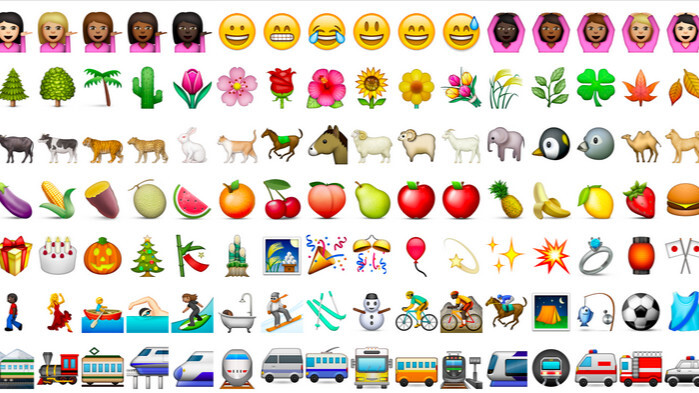
Emoji are incredibly popular. Our traffic stats show that unequivocally. Stories about new emoji, how we use them and just about every other aspect of the culture around them do incredibly well.

They’re fun. It’s undeniable. Even I, with an inclination that leans more to towards the Eeyore end of the spectrum rather than the over-caffeinated Tiggerish space occupied by my colleague Owen, have to admit it.

Owen loves emoji. He picks through the pronouncements of the Unicode Consortium, the arbiters of emoji accuracy, as if they are messages carried down from Mount Sinai – a little smiling poop carved onto a stone tablet.
I get it. I really do. And he’s right to say they have changed the way we communicate. But to accept that as an entirely positive development is wrong.
It’s possible to argue that emoji allow us to express emotions more easily. That’s definitely true in conversations between people who don’t share a common mother tongue. They are tightly-packed units of communication with meanings that can generally leap across the language barrier.

Though just as gestures can have wildly different implications in different cultures – the ‘thumbs up’ is hugely offensive in the Middle East – not all emoji cross borders free from baggage. In fact, even the members of the Unicode Consortium tussle over their correct meanings.
My belief is that they actually shrink our means of emotional expression. Shorthand is useful only so long as it doesn’t end up killing off the depth it replaces in moments of expediency. Of course language can, should and must evolve – English particularly is a mongrel – but we should try to hold on to the idea of stretching ourselves, and the beauty of a wide vocabulary.
However great the variety of sad faces there are in the emoji character set, they struggle to capture the specificity of ennui or melancholy. Schadenfreude – joy in the suffering of others – would require an elaborate set of glyphs to be rendered effectively.
And taking a positive view, the concepts of levity or ecstasy (the emotional state, not the club drug) are more complex than a machine gun blast of grinning faces can convey.
Of course, emoji aren’t going anywhere. They are fun. But I refuse to surrender the beachhead to the massed ranks of people who seem to believe that nuance and depth are fusty old concepts like the farthing, top hats or the imperial measurement system.
A lot of internet culture has been about willingly infantilising ourselves, retreating to a world of cartoon faces and looping GIFs, a place of primary colours and exaggerated reactions. Few things are truly “awesome” or genuinely worthy of a WTF. Emoji have helped speed up the pace of that simplification.
Taking a skeptical view of the unstoppable rise of the symbols is not the online equivalent of being a buggy whip maker giving Henry Ford side-eye for turning the horse into a novelty mode of transport for rich people and tiny men who wouldn’t make a living doing anything else.
We should value the incredible power of language. We evolved beyond scrawled symbols on cave walls because these words we use can do more.

A future in which the texts that historians pore over are digital scraps made up of scattered emoji is a bleak one.
We struggle now to agree on what the colored novelties mean, imagine how hard it will be when the ‘floppy disk’ – still given its own glyph – is finally erased from human memory. The great works of literature contain individual words that befuddle us, but their overarching meanings are still accessible.
As counter-intuitive as it may sound, written language is, in fact, more democratic than emoji. It is a more powerful tool. When you learn to harness it you can express such great subtlety, create entire worlds by joining together individually insignificant letters.

Emoji are like modern Lego kits, restricting you to a very limited set of building blocks, shutting down your options. Language stretches out before us with almost endless possibilities. It’s ripe for invention, while emoji are defined by others, their meanings largely imposed upon you.
I don’t want us to slide into a world where the symbols squash the wonder of words. I don’t believe they will ultimately, but it’s still important for us to take joy in the power of language, to advocate for it.
A string of dead-eyed symbols is not worthy of representing the true complexities of your emotions, and in 20 years, if you come to look back on them, they will fail to convey what you actually felt. You’re better than a smiling poop or a series of comically deployed aubergines, aren’t you?
The alternate view: Emoji, the new language of the internet, is improving the way we communicate online
Get the TNW newsletter
Get the most important tech news in your inbox each week.




